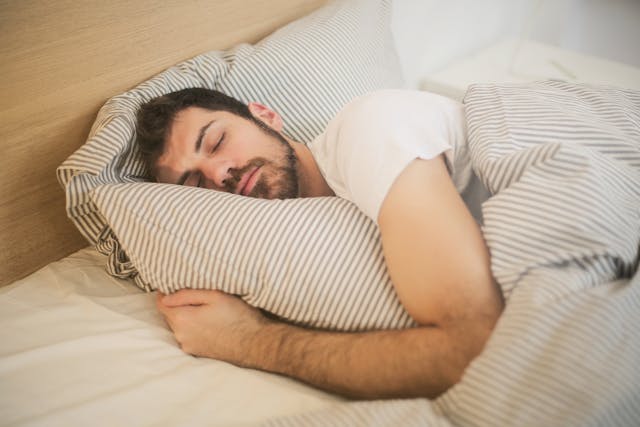Conquering addiction involves healing both the body and mind. An often overlooked aspect of recovery is sleep. Restorative sleep is essential for renewing physical energy, mental clarity, and emotional balance. However, many people in recovery struggle with poor sleep quality and disrupted sleep patterns. Addressing these issues is key to achieving a successful recovery process. In this article, we explore effective strategies to improve sleep quality and build a healthy routine help your sleep and addiction recovery.
Why Sleep Quality Matters In Addiction Recovery
Sleep plays a vital role in addiction recovery. During sleep, the body heals, regulates hormones, and strengthens the immune system. These processes are essential for physical and mental health, particularly for individuals recovering from substance use disorders. Unfortunately, addiction often disrupts the body’s internal clock and sleep cycles. Substances like alcohol, opioids, and stimulants interfere with the ability to achieve REM sleep, leading to poor sleep quality.
Long-term sleep deprivation can increase stress and anxiety levels, impair cognitive function, and heighten cravings. Poor sleep quality also affects mood swings and emotional stability, making it harder to maintain sobriety. By improving sleep habits, individuals in recovery can enhance their physical health, mental wellbeing, and overall recovery outcomes.
Common Sleep Disorders In Recovery
Sleep disorders frequently affect individuals in addiction recovery. These include:
- Insomnia: Difficulty falling asleep or staying asleep.
- Sleep Disturbances: Frequent waking during the night or disrupted sleep.
- Sleep Apnea: Breathing interruptions during sleep that cause disturbed rest.
- Disturbing Dreams or Nightmares: Unsettling dreams, often linked to anxiety or withdrawal symptoms.
- Daytime Fatigue: Persistent tiredness despite getting enough sleep.
- Circadian Rhythm Disorders: Issues with the body’s internal clock, such as delayed sleep phase syndrome.
These sleep difficulties often arise from withdrawal symptoms, stress, and the body’s adjustment to a substance-free life. Addressing these issues is crucial to achieving high-quality sleep and supporting the recovery process.

How To Reset Your Sleep Schedule And Fall Asleep Easily In Recovery
Establishing a consistent sleep schedule is essential for promoting restful sleep in addiction recovery. Here are practical steps to improve sleep quality:
1. Set a Consistent Sleep Routine
- Go to bed and wake up at the same time every day, including weekends.
- A consistent sleep schedule helps regulate your body’s internal clock and promotes better sleep.
2. Create a Sleep-Friendly Environment
Your bedroom should be a haven for sleeping. Ensure that it is;
- Keep your bedroom cool, dark, and quiet.
- Use blackout curtains or a sleep mask to block out light.
- Minimize noise with earplugs or white noise machines.
3. Avoid Stimulants
- Limit caffeine, nicotine, and other stimulants in the afternoon and evening.
- These substances can disrupt sleep cycles and make falling asleep harder.
4. Practice Relaxation Techniques
Reduce stress and anxiety levels before bedtime with relaxation methods such as:
- Deep breathing exercises
- Progressive muscle relaxation
- Meditation or mindfulness practices
Overcoming Sleep Deprivation During Recovery
Withdrawal symptoms often lead to sleep disruption during early recovery. Here are strategies to manage sleep deprivation and improve sleep quality:
1. Stay Active During the Day
Regular physical activity helps regulate sleep cycles and reduces daytime sleepiness. Aim for at least 30 minutes of moderate exercise daily, but avoid vigorous activity close to bedtime.
2. Eat Sleep-Friendly Foods
A well-rounded diet aids in healing and promotes sleep. Ensure that you include:
- Foods High in Magnesium: Spinach, almonds, and bananas can encourage relaxation.
- Foods High in Tryptophan: Turkey, eggs, and dairy products can help produce sleep-enhancing serotonin.
3. Avoid Alcohol and Sleeping Pills
Although they may appear to be immediate solutions, these substances can interfere with natural sleep rhythms and hinder recovery processes.
4. Limit Screen Time
Blue light from devices suppresses melatonin production and disrupts the circadian rhythm. Avoid screens at least one hour before bedtime or use blue light blocking glasses.
5. Establish a Relaxing Bedtime Routine
Create a pre-sleep routine to signal your body that it’s time to wind down. Activities like taking a warm bath, reading, or listening to calming music can promote restful sleep.

Professional Help For Sleep Disorders In Recovery
If sleep disturbances persist despite adopting healthy sleep habits, consider seeking professional help. Therapies such as Cognitive Behavioral Therapy for Insomnia (CBT-I) can address underlying issues and improve sleep quality. In some cases, medical treatments or prescription medications may be necessary to manage severe sleep disorders. Consulting a healthcare provider or addiction specialist, at a Las Vegas drug rehab, ensures a tailored approach to overcoming sleep challenges.
Tips For Practicing Good Sleep Hygiene
- Maintain a Consistent Sleep Schedule: Go to bed and wake up at the same time daily.
- Optimize Your Sleep Environment: Ensure your bedroom is conducive to high-quality sleep.
- Avoid Stimulants and Alcohol: These substances disrupt sleep cycles and recovery.
- Engage in Relaxation Techniques: Incorporate mindfulness and breathing exercises into your routine.
- Limit Naps: Avoid long naps during the day to maintain your sleep schedule.
How Sleep Enhances The Recovery Process
Getting adequate sleep offers numerous benefits for individuals in recovery, including:
- Improved Mood: Quality sleep reduces anxiety and depression often associated with addiction recovery.
- Better Cognitive Function: Restful sleep enhances decision-making and reduces the risk of relapse.
- Physical Healing: Sleep supports the immune system and aids the body’s healing processes.
- Stress Management: High-quality sleep helps regulate stress and anxiety levels, promoting mental wellbeing.
How To Fix Your Sleep Cycle And Get A Good Night’s Sleep While In Recovery
Maintaining a healthy sleep schedule is a cornerstone of physical and mental health, particularly during addiction recovery. By prioritizing healthy sleep habits and addressing sleep disturbances, individuals can create a strong foundation for lasting sobriety. Remember, recovery is a journey, and improving sleep quality is a significant step toward achieving long-term health and happiness. Prioritize restful sleep and embrace a healthier, more balanced life.

